Look into your mom’s purse and what do you find?
Tissues and receipts, sure. Definitely snacks. Maybe some sunglasses and keys.
And plenty of hand sanitizer!
Want naturally radiant skin? We’ve created a FREE guide to give you the best tips & tricks for natural skincare.
Click here to get your FREE copy of our Skincare Guide!
Some people swear by the stuff and slather it on 20 times a day. Others don’t use it at all. It seems like no matter who you ask about hand sanitizer, everyone has a slightly different opinion.
What gives?
Should you just keep using the alcohol-based sanitizer that’s been around for a while now?
Findings from an exciting new study reveal you have options other than you might think.
Hand Sanitizers Kill Dangerous Bacteria and Keep You Healthy
Hand sanitizers have become extremely popular over the past few decades. Starting in the 1990’s, you could find brands like Purell at convenience stores and on grocery store shelves.
Now you see it practically everywhere. Airports. Music festivals. Sporting events. Even the mall.
Marketed as a convenient alternative to washing your hands with soap and water, hand sanitizers evolved into a massive industry. In 2009 (the height of the swine flu pandemic), the hand sanitizer retail market sold about $180 million in products (1)!
Sanitizers have also proven be more than just a marketing trend:
- A study published in The American Journal of Tropical Medicine and Hygiene found that hand sanitizer reduced levels of E. coli and fecal streptococci more than washing with soap (2).
- A 2001 study found that schoolchildren who used hand sanitizer (benzalkonium chloride) at scheduled times were 33 percent less likely to be absent due to illness (3).
- A study published in BMC Infectious Diseases found that office workers who used an alcohol-based hand sanitizer at least five times each workday were around 66 percent less likely to get sick than those who just washed their hands (4).
That’s just a tiny sample of the mound of scientific research out there.
We already know that sanitizers can work. They’re great options if you’re traveling, camping, or just far from a sink.
Figuring Out Which Hand Sanitizer Works Best Is Challenging
Of course, not every hand sanitizer is created equally. You might have heard reports about some sanitizers stripping away the natural oils of your hands. Maybe some brands you’ve used resulted in dry, irritated skin.
With so many sanitizer choices available, it’s easy to spend 15 minutes just reading product labels. How do you know which one is the best? Also, just as importantly, what’s the best way to use it and keep away harmful bacteria?
Wait. Don’t Hand Sanitizers Kill Good Bacteria?
As hand sanitizers become more popular, some people have expressed concerns that they work too well: they kill off harmful bacteria as well as the beneficial stuff that keeps us healthy.
These concerns fall in line with the “hygiene hypothesis” – the idea that a lack of exposure to microbes (through constant use of antibiotics, sanitizers, cleaning products, etc.) doesn’t give the immune system an opportunity to develop or work properly (5).
Is it something to worry about with hand sanitizers?
Probably not. [tweet_quote] Hand sanitizers work differently than antibiotics, which can create antibiotic-resistant bacteria when used frequently. [/tweet_quote] Because sanitizers act quickly to destroy bacteria cell membranes, the germs don’t have a mechanism to become resistant to the process (6).
There’s no need to slather sanitizer on your hands 24/7 or obsess about creating a perfect sterile environment. But there’s no need to worry about using the stuff occasionally either – especially when soap and water aren’t available.
Insights from an Exciting New Sanitizer Study
A study published in December 2015 in the journal Wounds revealed that non-alcoholic sanitizers designed to kill bacteria for several hours were much more effective than previously thought (7).
The researcher’s’ goal?
To find out if single-use, long-acting sanitizers would work as well as multiple-use, alcohol-based sanitizers in an outpatient surgical setting.
The study participants ranged in age from 18 to 65. All of them worked full-time at the Rutgers New Jersey Medical School outpatient plastic surgery clinic.
The researchers divided the 95 participants up into three groups:
- The first group used alcohol-based sanitizer
- The second group used benzalkonium chloride-based sanitizer (which is non-alcoholic)
- The third group just washed their hands with soap and water
To compare how well each hygiene practice worked, the researchers measured hand bacteria counts at four different times during the course of each participant’s clinic session (which lasted three hours).
The researchers also noted the condition of the participants’ hands before the clinic sessions. These measurements were self-reported via a questionnaire.
A key point: groups that used the alcohol sanitizer or just soap and water reapplied the product or washed their hands before every new patient contact.
The group that used the benzalkonium chloride sanitizer, on the other hand, only applied the product once because it was designed to effectively kill bacteria for several hours. That’s what the researchers wanted to test.
What happened?
The benzalkonium chloride sanitizer was just as effective as soap and water and alcohol-based sanitizers. They also found it even improved hand condition in comparison to soap and water hand washing!
How to Choose the Right Hand Sanitizer: What You Need to Know
Because both alcohol-based and benzalkonium chloride hand sanitizers can kill bacteria effectively (as we saw in the study above), the one you decide to use is up to you.
Here are some of the pros and cons of each to help you make the best decision:
Alcohol-Based Sanitizers

- Alcohol-based sanitizers are a lot like the Coca-Cola of soft drinks. They’ve become the default choice because they’ve been around the longest, so they’re the easiest to find.
- The vast majority of the research on hand sanitizer effectiveness has focused on alcohol-based sanitizers. Time and time again, they’ve been proven to prevent illness and kill harmful bacteria.
- Alcohol-based sanitizers tend to be the cheapest option available.
Cons
- Applying alcohol-based sanitizers might cause your skin to get irritated and dry out. This can be especially tough if you have to sanitize often and/or live in a dry climate.|
- These products aren’t designed for long-effect use. That means that you will have to use more sanitizer every hour or two if you come into contact with a lot of bacteria. This can be inconvenient and sometimes hard to remember!
- Some people don’t like the smell. Some alcohol-based sanitizers mask the alcohol scent pretty well, but it’s pretty apparent with others. If you don’t like that smell, you’re much less likely to reach for the sanitizer when you need to.
Finding a Good Brand
The majority of commercial alcohol-based hand sanitizers create the same issues as many cosmetics. They’re loaded with potentially dangerous chemicals like triclosan, parabens, and artificial fragrances. These preserve the sanitizer and change how it smells, but they don’t help kill bacteria.
Look for natural products, like Dr. Bronner’s organic hand sanitizing sprays or EO hand sanitizers, that avoid all these additives. The CDC recommends an alcohol content of at least 60 percent.
Benzalkonium Chloride-Based Sanitizers
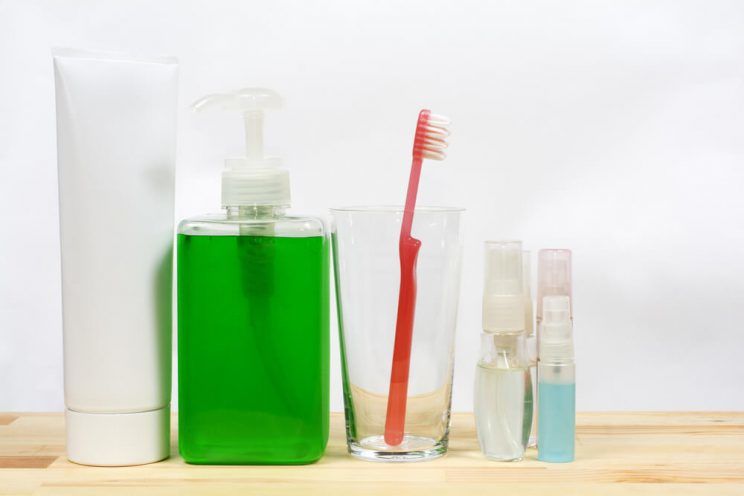
- Neutral smell. Without the alcohol to worry about, these sanitizers typically have an extremely faint scent… if any at all.
- Cost-effective. Benzalkonium chloride sanitizers cost more by volume than alcohol sanitizers, but they could end up saving you money because they’re designed to last for several hours at a time so you don’t have to constantly reapply.
- Less to remember. Because you can buy benzalkonium chloride sanitizers designed to last for hours after just a single use, you don’t have to think about applying it so often.
- Easy on your hands. Benzalkonium chloride sanitizers are also very unlikely to irritate your skin or dry it out (8).
Cons
- Not a large body of scientific research. The vast majority of sanitizer research has focused on alcohol-based sanitizers, so there’s still a lot to be done in this area. That’s one reason why the Rutgers study is so important!
- Less choice in products/sizes than alcohol-based sanitizers, which are far more common.
Good Brands
Just like with alcohol-based sanitizers, the best benzalkonium sanitizers will be free of parabens, triclosan, and other artificial fragrances.
Look for natural brands whose products stick to the basics, like Avant alcohol-free hand sanitizers.
Soap and Water
Okay, okay. This one really isn’t a choice. It’s mandatory.
Washing your hands regularly will kill bacteria and make it less likely you end up sick (9, 10).
Plus, washing with soap and water is really the only way to remove dirt and grime that accumulates while you’re working, gardening, exercising, and so on. The hand washing motion creates mechanical friction, rinsing away potentially harmful microbes.
Sanitizers aren’t a substitute for this essential step. According to Deborah Franklin, a New York Times consumer columnist, they aren’t meant to remove dirt and grime (11). This means that using sanitizers without washing dirty hands with soap and water first limits their ability to work effectively.
If you’re traveling or away from a sink, by all means use the hand sanitizer if you have it! It will still kill bacteria and help keep you from getting sick. Just view it as a supplement, not a long-term replacement, to good old soap and water.
Finding the Best Hygiene Practice to Suit Your Lifestyle
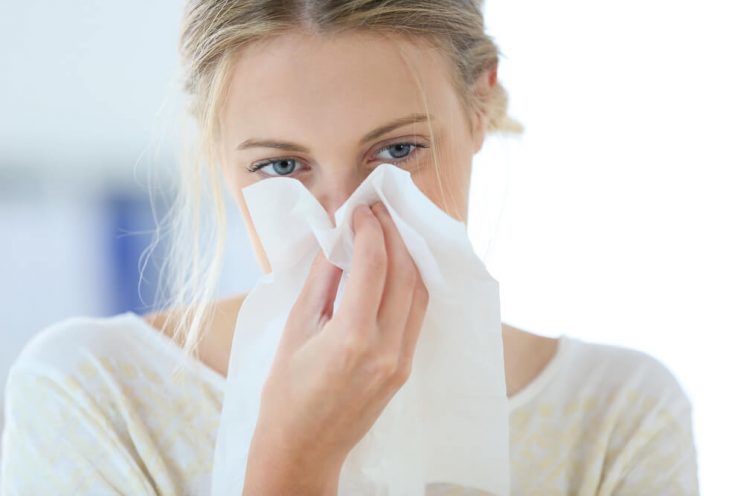
How often should you use this stuff?
There isn’t a one-size-fits-all solution. A lot of it depends on what you do for work and how active you are.
So start by choosing a sanitizer: 1) with a scent you can stand, 2) that you can remember to use, and 3) that doesn’t irritate or dry out your skin.
Remember to wash your hands often, especially at key times like before food prep and meals, after coughing, blowing your nose, and using the restroom. Sanitize after you wash to kill off the most bacteria possible.
If you work a 9-5 job, you could buy a long-acting sanitizer and use it in the morning before work, after lunch, and just before you head home for the day.
A lot depends on your lifestyle, too. If you just got off public transit, passed through the airport, or shook a lot of hands, now’s the perfect time to sanitize! [tweet_quote] One of the most common mistakes people make with sanitizer is just not using enough. [/tweet_quote] Apply at least a dime-sized amount into your palm before rubbing your hands together. Be sure to cover all the surfaces of both hands, including between your fingers and up around your fingertips and nails.
Finally, rub the sanitizer in until the product is totally dry (don’t touch anything until it is). It shouldn’t take more than about 30 seconds.
Another Stepping Stone to Better Health
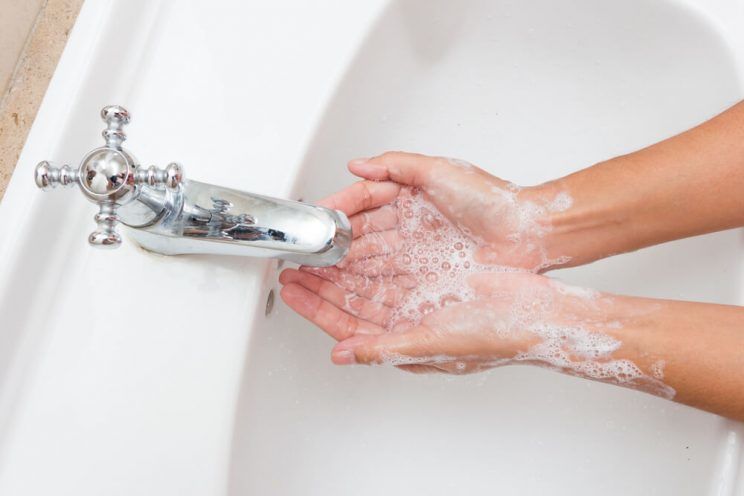
Thanks to studies like the one from Rutgers University, we now know that non-alcoholic benzalkonium sanitizers can be just as effective as alcohol-based ones in real world settings. They can also kill bacteria for hours, making them a convenient option for forgetful people like myself!
So choose the sanitizer you like best – one which treats your skin well and you remember to use regularly. Feel free to change things up and experiment.
Don’t choose between sanitizing or washing your hands. Choose both whenever you can! Your immune system will thank you later.
Do you use hand sanitizer? Why or why not? If so, when do you use it during the day? Leave a comment below and share your experience!
(Read This Next: How to Naturally Boost Your Immune System)


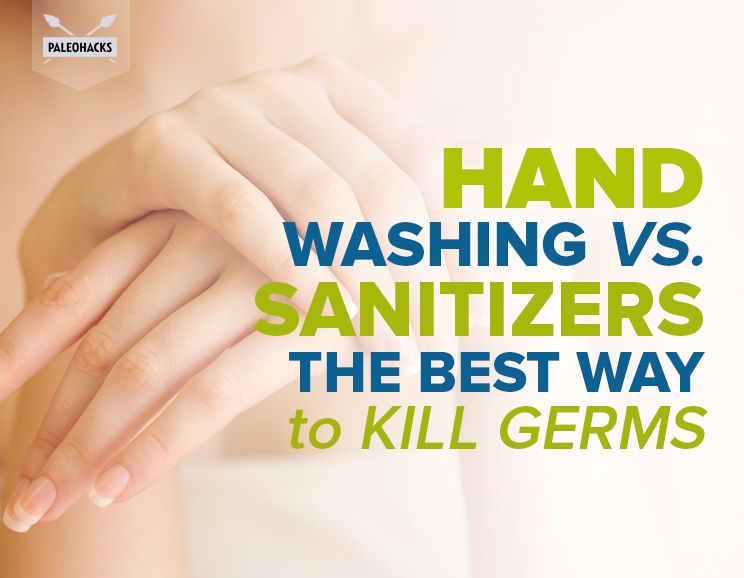
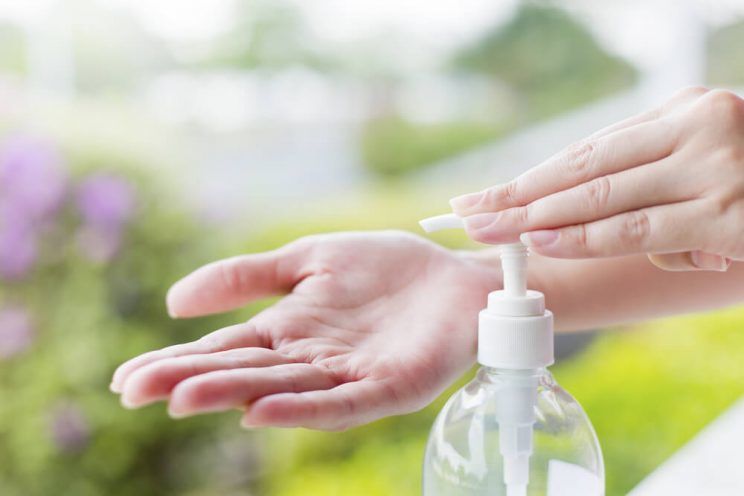
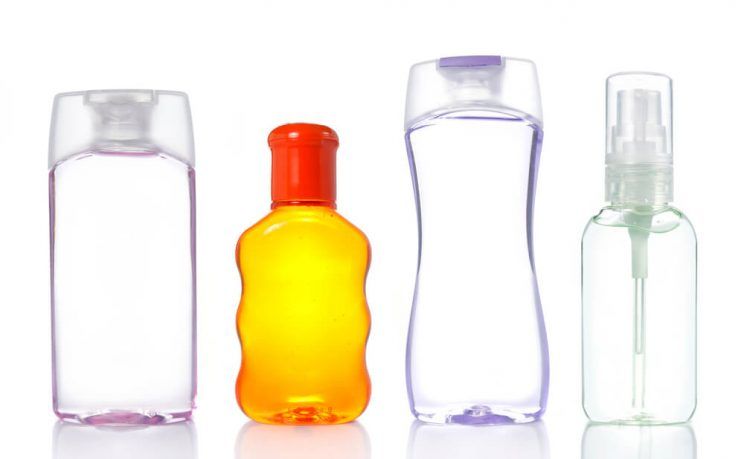
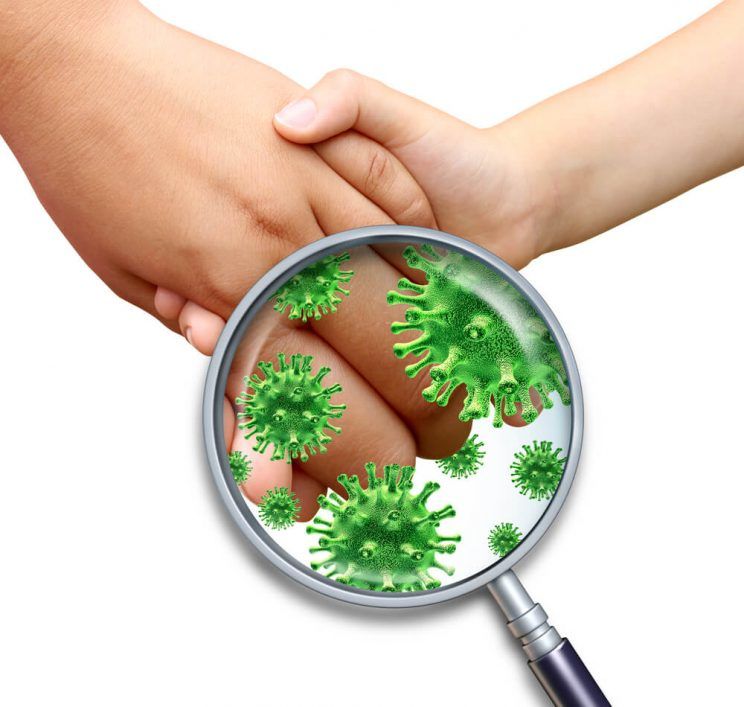
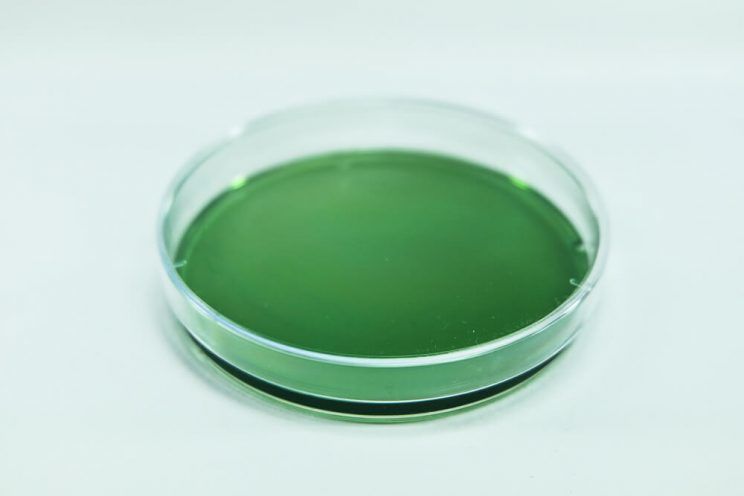
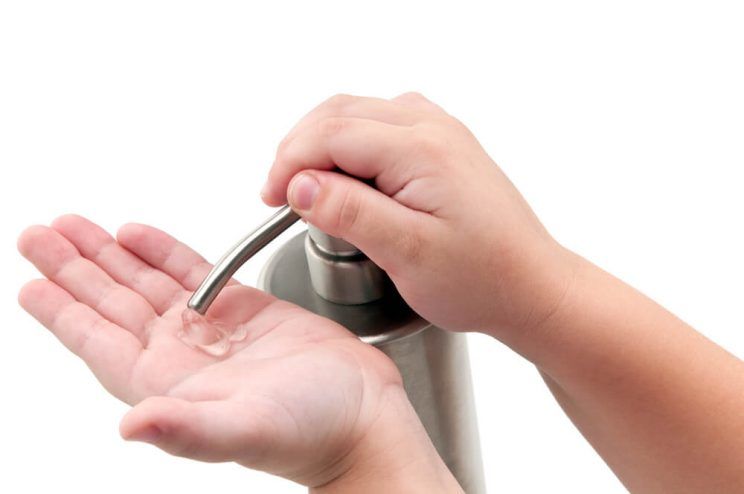
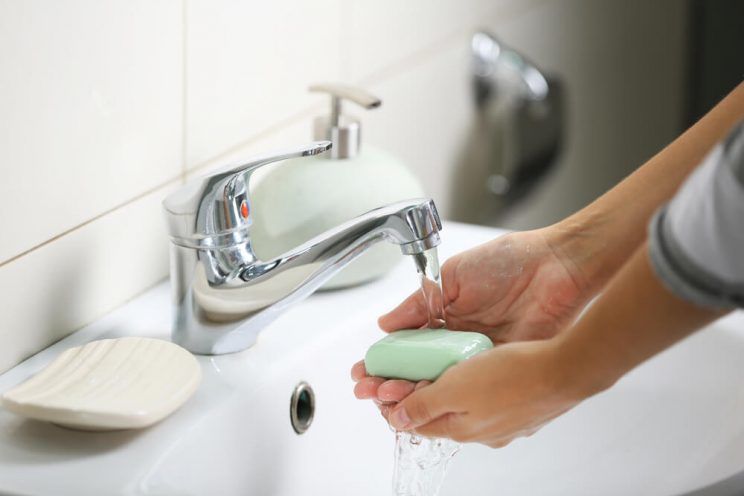
 3-Layer Raspberry Almond Butter ‘Oats’
3-Layer Raspberry Almond Butter ‘Oats’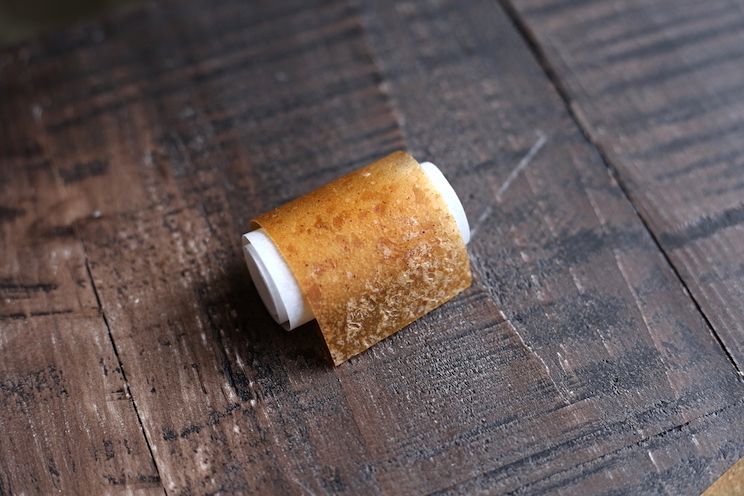





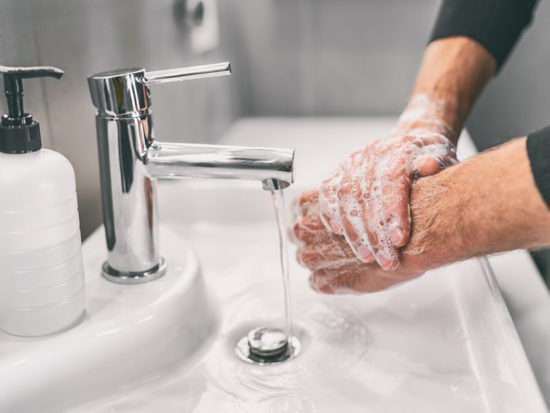

Show Comments